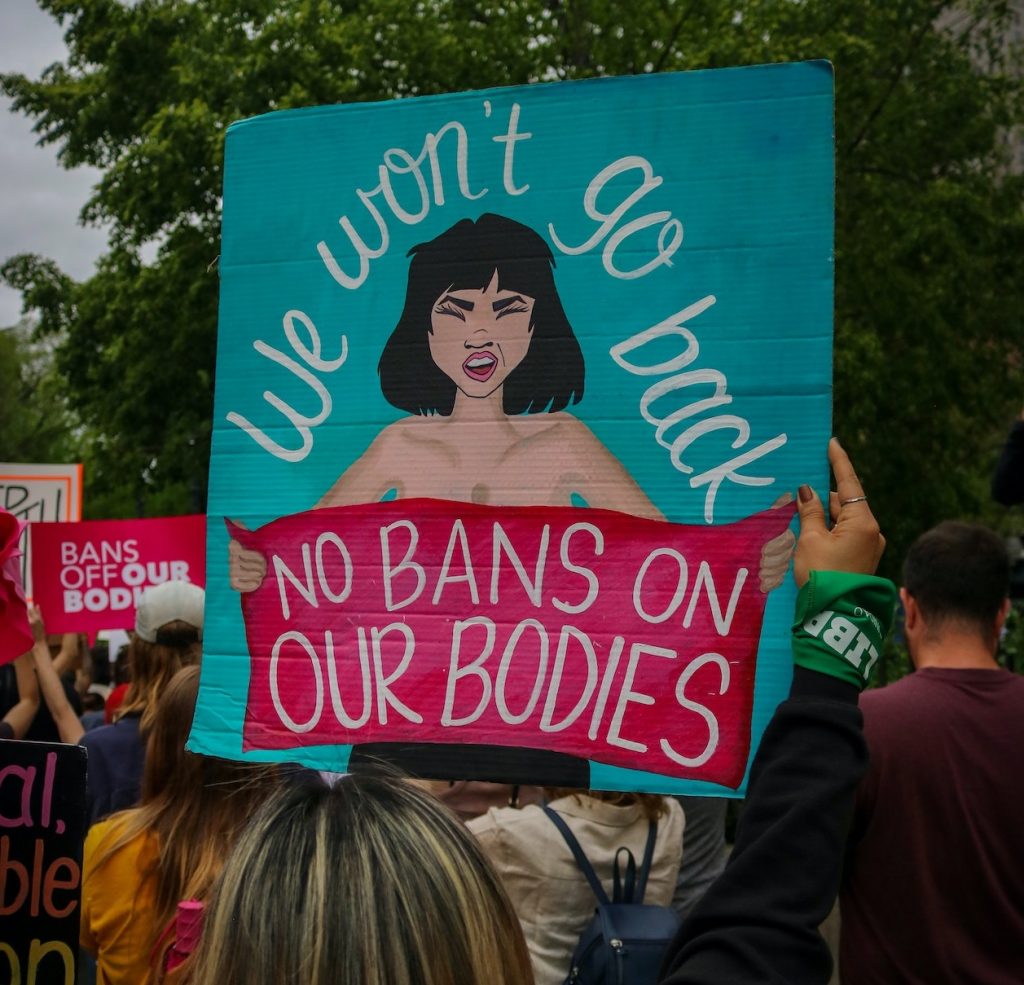It’s a dark time for women’s rights and maternal health following the US Supreme Court’s decision to overturn Roe vs. Wade confirmed on Friday 24th, June 2022. This long-awaited decision triggered widespread celebration and rage worldwide among women and men alike. For context, the following is a quick summary of the overturned ruling:
- In 1970, Jane Roe (a fictional name used in court documents to protect the plaintiff’s identity), an unmarried pregnant woman filed a lawsuit against Henry Wade, the district attorney of Dallas County, Texas, where she resided, challenging a Texas law making abortion illegal except by a doctor’s orders to save a woman’s life.
- In her lawsuit, Roe alleged that the state laws were unconstitutionally vague and abridged her right to personal privacy, protected by the First, Fourth, Fifth, Ninth, and Fourteenth Amendments.
- The Roe vs. Wade case stimulated extensive discussion of the different views on when life begins. On Jan 22nd, 1973, the Supreme Court made a ruling on abortion rights that changed the way the state could regulate abortion and the right to privacy. The court found that while states hold an interest in safeguarding health, maintaining medical standards, and protecting prenatal life, it should not be up to the state to decide when life begins.
First of all, what is abortion, and why the uproar?
Abortion is an intervention to end a pregnancy so that it does not result in a live birth. An induced abortion ends a pregnancy with medication or a medical procedure (this is often performed by a trained health professional).
Pregnancy imposes significant physiological changes on a person’s body. Unfortunately, these changes can exacerbate underlying or preexisting conditions, like kidney or heart disease, and can severely compromise health or even cause maternal death. There are situations where pregnancy termination in the form of abortion is the only medical intervention that can preserve a patient’s health or save their life.
Simply put, there are several reasons a woman may need an abortion apart from personal choice. In a society where the norms are centered on human rights and fundamental freedoms but also governed by religion, the decision whether to raise a child, place a baby for adoption, or seek abortion care may be hard to make. Women need to know that they have a right to respectful care and support for whatever decision they make.
Did you know?
About 1 in 4 women in the United States will have an abortion by age 45.
So, what does the law have to do with this?
On June 24th, 2022, the Supreme Court overruled Roe vs. Wade and ultimately women’s constitutional protection for abortion. It was noted that the authority to regulate abortion was returned to the people and their elected representatives. This will likely lead to abortion bans in roughly half the states in the US.
What about the future of maternal health?
As of Friday 24th June, some clinics have already stopped performing abortions after the Supreme Court’s decision. We have to consider that there is a lot more at risk for any woman being forced to continue a pregnancy.
- There is now a surge in the social stigma associated with seeking reproductive healthcare. The fear-mongering on social media has already gone overboard as masses flock to delete period tracking apps in an effort to protect their health privacy.
- Women now face an additional financial burden to seek healthcare in other states or countries where it is legal to get the necessary medical attention. Consequently, this further widens the gap in health care disparities and inequities. Socioeconomic factors such as age, ethnicity, economic status, geographic location, and special health care (disability) needs come into play when seeking reproductive care.
- The mental well-being of women and girls overcoming the trauma of rape resulting in an unwanted pregnancy, or following a miscarriage will also need to be addressed.
- There is a wider impact of this week’s decision by the Supreme Court as restricting access to abortions does not prevent people from seeking abortions – it only makes it more deadly. The global implications on safe abortions around the world remain to be seen but we can only hope that global reproductive and women’s rights groups will continue to advocate for the right of all couples and individuals to have access to the information needed to make responsible decisions regarding family planning.
We will continue to provide support to all women in making the right decision for their health during pregnancy. If you are pregnant and unsure of how to feel or what to do next, consider speaking with a counselor, obstetrician & gynecologist (OBGYN), primary care physician, or local nurse to learn about the resources available to you.
All-Options Counseling
www.all-options.org/find-support/talkline
Talkline: 888-493-0092
A Hotline that provides conversation with peers about abortion, adoption, parenting, infertility, or pregnancy loss. Volunteer staff are not licensed health care professionals or mental health specialists.
Child Welfare Information Gateway
www.childwelfare.gov/topics/adoption
A website from the federal government that provides resources for birth parents and adoptive parents on a variety of topics.
Ministry of Health
If you are located within the Caribbean, visit your local health center or hospital for more information.
National Council for Adoption
https://www.adoptioncouncil.org
An organization that provides education on adoption and resources for everyone connected by adoption, including birth parents, adoptive parents, adopted people, and adoption professionals.
Planned Parenthood
https://www.plannedparenthood.org/
A nonprofit organization that provides reproductive healthcare in the USA and globally. Visit your country’s website for more information.
